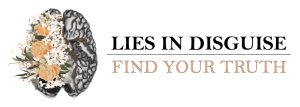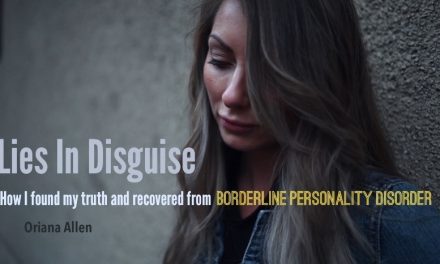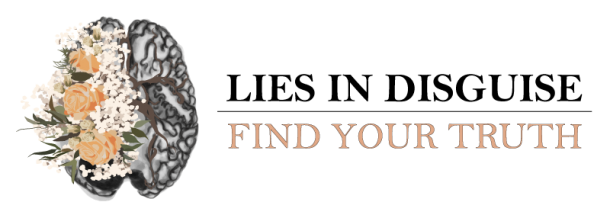Having a diagnosis in mental health, such as, Borderline Personality Disorder, a person would be aware of the areas in which their response to stress is weaker, areas such as a sensitivity to rejection and perceived abandonment. Likewise, for someone diagnosed with Panic Disorder, perhaps being in a crowded place would be a trigger. Knowing this about oneself ahead of time allows one the opportunity to compensate, by making use of helpful coping mechanisms.
Decompensation, is what happens when your usual ways of coping are no longer working, and your symptoms worsen, indicating a decline in your mental wellness. When we reach the point of relapse or crises, there have usually been many signs or clues along the way beforehand. These clues can be specific behaviours, physical body sensations and/or emotions. These things are unique to you, that only you would know or someone who knows you well, would be able to recognize and would indicate that you may be decompensating.
Below are a few ways in which we may be trying to regulate our emotional distress that are NOT the most helpful – even harmful, to ourselves. This may indicate a healthier alternative to self-regulate is needed.
Behaviours:
- Excess skin rubbing or picking (until skin abrasions or sores/bleeding is present).
- Jaw clenching and/or teeth grinding (causing damage to teeth, headaches, sore jaw).
- Self medicating behaviours: Drinking more coffee/alcohol than usual, or eating larger amounts of sweets.
- Excess nail biting or chewing around cuticle area (causing damage/deformity/abrasions and pain).
- Insomnia or over sleeping.
- Hyper vigilance (Enhanced state of sensory sensitivity) also may be startled easily.
- Isolation/withdrawn.
- Taking prescription drugs in order to self medicate.
- Spending an excess amount of time on social media or electronic devices.
Emotional and physical responses:
- Increased Irritability, shortness, impatience and anger.
- Restlessness: Feeling as if you have to move constantly, i.e. Pacing, cleaning, fidgeting.
- Lack of motivation; lethargy.
- Frequent crying spells.
- Loss of joy/interest in usual things.
- Increase anxiety.
- Exhaustion – i.e. burnout
Physical Symptoms:
- Muscle tightness and tension.
- Headaches/migraines.
- Ulcers, upset stomach, Irritable bowl syndrome.
- Loss of appetite or increased appetite.
- Excess tiredness.
- Lack of self-care and grooming – i.e. showering, shaving, hair cut, laundry, dressing up/makeup.
- Any other unpleasant symptoms which may result from medications side effects and that should be explained to your doctor.
Every person, diagnosed or not, has ways in which they self-regulate and cope with day to day stresses. For individuals with a mental health diagnosis, self-care is especially important in prevention of a relapse into harmful coping strategies. There are many healthier coping alternatives. If you find yourself doing any of the above and anything else that only you would know that may not be as functional for you, find something else with which to replace those behaviours.
A helpful practice by which to identify physical body sensations is called bio-feedback. This can be a self-guided body checkup, identifying the physical things happening in your body, then turning those sensations into emotions – giving it a name. Once you have named the emotions that are creating the physical sensations, sit with the feeling – even If it feels uncomfortable or you are unsure as to what is causing the feeling. Work with your body instead of against it – i.e., not pushing the feelings away.
A lot of the behaviours and symptoms noted above, can indicate that we are not attending to ourselves. It is important to attend to ourselves with intention; to gain a superior awareness and recognition of decompensation. This is a crucial process in maintaining mental wellness.
Something to try:
Make your own personal list of indictors that reveal your decompensation symptoms. Then make another list of alternate things you can do to replace them. This can be part of a powerful self- awareness/self-care tool kit!
Warm Regards
Oriana
xo
Keep healing, keep growing. keep finding your truth.









Dear Oriana, Thank you for publishing your thoughts about signs of increasing mental decompensation. I have what I call RTSS or reactionary traumatic stress syndrome as the result of living with PTSD for virtually my entire life and in 2010 after encountering a series of sociological and occupational stressors (triggered by the 2008 near worldwide financial collapse in the savings and loan industry and other tumultuous changes at work and inside the home) I suffered a “nervous breakdown” a “perfect storm” characterized by the negative interactions and synergistically destabilizing combined effects of OCD, ADD and neurological “tics”, the so-called “terrible triad”.
Various psychological labels have been applied to me over the past twenty years, Asperger-ish, PDD (pervasive developmental delay, or disorder), Obsessive Compulsive Disorder, Attention Deficit Disorder, the presence of various neurological “tics”, PTSD, BPD (bi-polar disorder or manic/depressive), BPD as you have described (borderline personality disorder).
Kind of an alphabet soup worth of letter combinations isn’t it?
I have become permanently occupationally sidelined since 2012 with a total disability determination from the Social Security Administration. This occupational “retirement” has greatly reduced the rate of continuing mental decompensation effects.
However my lifelong struggle with PTSD which began in early adolescence with sexual molestation’s and accompanying physio-psychological traumas reached a crisis peak in 2010 with occupational injuries in combination with my acute mental decompensations effects eventually drove the final nail into the coffin my marriage of 17 years had become, and I divorced in 2014.
Combat forms of PTSD are commonly pockmarked with the symptoms of inorgasmia, erectile dysfunction, alexithymia, depression, loss of former mental capacity, general malaise (mental funk), feelings of self-worthlessness, self hatred, self debasement, self harm, and excessive anxiety from sensory hyper awareness. I feel like I am turning into an animal, or reverting into a human animal without moral direction finding capability. I’m not immoral, I’m A-moral, like a dog or a cat,
operationally guided, or characterized by a more instinctively biased form of neurological patterned response decision making “tree”. Are you with me so far?
From a sociological standpoint, I am “seen as” or interpreted by others upon visual sighting as a “pariah” due to my physiological appearance, particularly by homosexual males and homophobic heterosexuals men as well. There are certain stereotypical features that are genetically imprinted upon the minds of humans that under certain conditions of expression can illicit and provoke often extreme forms of social condemnation (or other unwanted physical confrontations of a less immediately life-threatening form).
Since I no longer have a wife to sociologically “hide behind”, any appearance I make into the public realm can become disturbingly confrontational and evolve rather quickly into a “why are you talking to me like this, and asking me about things I do not wish to associate myself with” or worse, I become to object focal point for the verbal derision from others wishing to make a public example of what is not “acceptable” and what is to be shunned for the fear I might affect the lives of their children in a very bad way. My neighbors who have adolescent boys and girls admonish then not to have anything to do with me. When I speak to the parents I can see it in their eyes as they regard me and the furtive glances they make towards their children who naturally want to see what dad is saying to the funny looking neighbor they are not supposed to talk too.
I don’t like to drive when the streets are crowded with traffic, there is too much stimulation coming at me from all directions and all my senses are on high-alert reporting in status. I quickly sensory overload and become increasingly self-aware that I am beginning to loose it, where I mentally check-out, become lost or directionally “challenged”, disoriented and even to the point where I forget the meanings of words like “north”.
Once I was driving home and encountered a bridge that was closed due to construction. I was forced to turn around and I then realized I did not know the meaning of the road sign that said “North” To 1-69 Hwy. North had no meaning. I could read the word, and I could see the arrow pointing ostensibly towards the “north” direction, but as to what lie in that direction? My mind was totally blank. No concept of north of the river (the Missouri), no concept of Iowa, no concept of Canada even. North was a word I could read but it had no physical conceptual reality in terms of location with reference to where I was, stranded in my car, sitting at a 4 way intersection, lost in space (but I could still tell the time of day) without a clue as to what to do next.
This has got to be one of the strangest experiences I have ever had, occurring in the middle of the day full sunshine, everything around me perfectly normal except me and my thoughts.
So, you might see or possibly understand why I don’t like to drive to places I haven’t been to before, or visited for a long time. Why I don’t like to shop during the day when the stores are full of people. Why I avoid traffic and limit my exposure to people in general.
I just read an article (google scholar) about the effects of solitary confinement on prison inmate populations. The studies show that solitary confinement, especially if it is prolonged, say a month or longer has some very real adverse effects on certain types of inmates.
Prison inmates with previous documented evidence of mental illness particularly those who have ADD and or OCD often bear up strikingly a lot worse than others not so affected when they are confined to solitary conditions.
There is also a recognition that most humans in general, even those without some kind of pre-existing mental condition, also do not bear up very well with long term isolation from other humans. There is increasing evidence that people with mental health issues face compounding difficulties from dealing with the immediate effects of mental decompensation in addition to the “insidious” multiplicative effects that prolonged isolation can bring to bear upon the very same issues created by the decompensation’s effects originally.
Have you experienced self-exile? Has your disease state caused you to retreat from humanity in the effort to isolate yourself from the over-stimulation and negative interpersonal reactions with the public in general? Have you noticed a dichotomy of push pull forces between your libidinal urges and the reactionary forces that desire (conspire) to keep you inside a self-protective seclusion?
Do you find yourself wanting to sign up for Chaturbate (https://chaturbate.com/) just to get some kind of external stimulation without the pressure and unknown ability to even physically respond to a sex-date arranged through “Loveaholics”, “Wildbuddies”, “Flirt” , “Tinder”, “POF” or you get the idea right?
I still have all my issues from PTSD, OCD, ADD, Asperger’s, and now the loneliness of isolation and from six years without experiencing the touch of a woman’s caress. Who in their right mind would even want to caress such a mess???
The worst part about having a mental disability is the mental stress that comes from living with it and trying not to make those around you suffer the worse because of it.
mrc109
Hello,
Thank you for your heartfelt sharing. It sounds you have a lot on your plate and I am not sure where I need to focus my attention to best help you. I definitely see you are a very articulate and self aware individual yet struggle with your illnesses and loneliness. Mental illness can be a very lonely place. Suffering internally along with worrying and frustrated at the idea of causing suffering to those around you. I hope you can gain some comfort knowing that I can relate to much of your writings and I hope my writings can offer some insights to better help you on your journey. Stop by again soon.
Sincerely,
Oriana